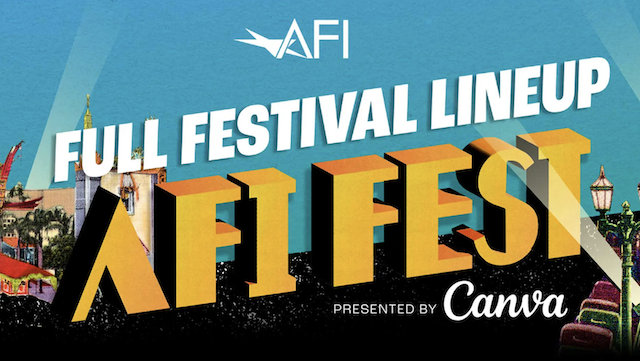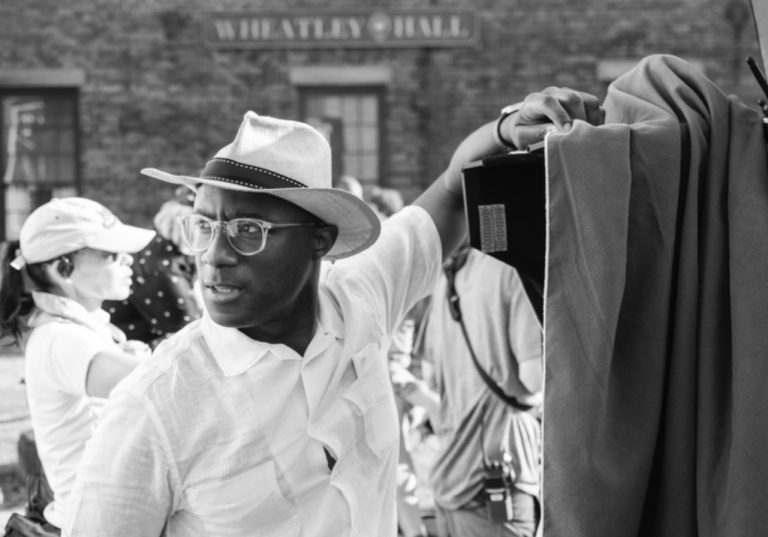
This dialogue between director Barry Jenkins and his composer Nicholas Britell details the unfolding process of creation just as their making of the music underscored the creative process which illuminated in Jenkins’ 10-episode adaptation of author Colson Whitehead’s acclaimed novel, The Underground Railroad.” In Whitehead’s alternative world the system that saved many lives of escaping slaves involves an actual railroad. That concept demanded that Jenkins and Britell come up with music which suited such a unique concept.
The Underground Railroad is an incredibly complex, layered book which addresses many issues about slavery and its fundamental inhumanity. Jenkins and Britell had to come up with a unique way to fill this adaptation with the right sounds, musical or otherwise. In this conversation, these two exchange recollections and insights into the making of the music so that it adds to a better understanding of Jenkins’ creative process in general.
Born November 19, 1979, Jenkins is not only a film director, screenwriter, producer but also a member of The Chopstars collective. After making his filmmaking debut with the short film My Josephine in 2003, he received an Independent Spirit Award nomination for Best First Feature for Medicine for Melancholy in 2008.
Following an eight-year hiatus from feature filmmaking, Jenkins directed and co-wrote the LGBT-themed independent drama Moonlight in 2016, winning an Academy Award for Best Picture. He became the fourth black person to be nominated for Best Director and the second black person to direct a Best Picture winner. In 2018, his third feature, If Beale Street Could Talk (based on James Baldwin’s 1974 novel of false imprisonment), won praise, and earned various award nominations.
And now this year of pandemic, he directed a Prime Video limited series, The Underground Railroad, based on the novel of the same name. In 2017, Jenkins was included on the annual Time 100 list of the most influential people in the world.
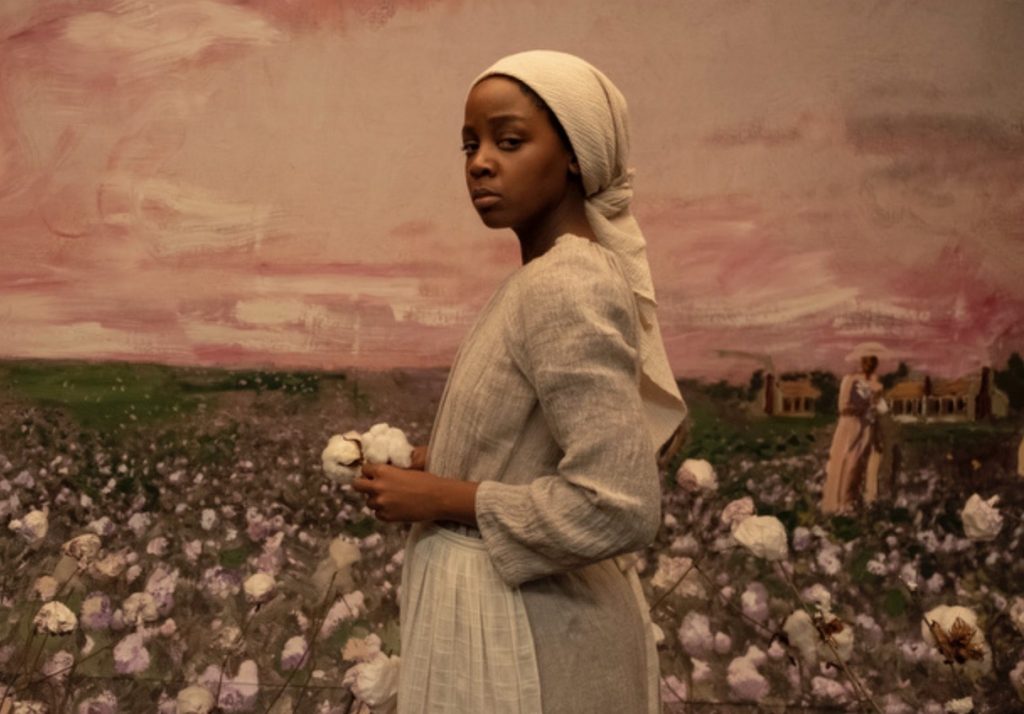
BJ: Because I first read the book before Moonlight even premiered, this was all happened around the same time. Nick sent me “Middle of the World,” the last cue that we wrote for Moonlight, and we put it in. I was reading The Underground Railroad for the first time at the same time, and we waited to send Colson [Whitehead] the film until we had that song.
Typically, the scores that Nick and I work on — I have sat in the chair where Nick is sitting, and if you turn his laptop around, you will see the station where he always sits.
He’s sitting at the console, which is directly opposite him. But, of course, with covid, we had to come up with a whole new process. Musically, it was the same thing. The writers’ room, where we actually made Beale Street, then we went back with the scripts and went into production. Nick was still in New York at the time. I even flew up to New York once or twice during production because I was based in Georgia — and we got to work on it.
But it was the same thing, where we had all these filled recordings, bugs and all these different things, and I was just throwing darts at Nick and telling him, “Okay, cool. Go ahead and go. We’ve got 10 hours of content to score. So go in as many directions as you can chart right now, and once we get the edit going, I’ll rejoin you.”
NB: Exactly. There were so many different early concepts that we experimented with, because Barry is talking about it, it’s over four years for Barry. I was thinking and living with the musical concepts for this for about 18 months, which for composing something is a very long process.
I remember receiving from Barry a text that had an audio message in it, and it just sounded like this drilling. I was like, what is this? I think later in the day I got another text from Barry and he said “Did you get what I sent?”
Then I listened again to it and thought, “Okay, I think I know what’s going on here.” And immediately, I was like, “Okay, this is awesome,” because right away I took that drilling and started experimenting with it. This idea of the ground and going downward. That might have been one of, if not the first notion…
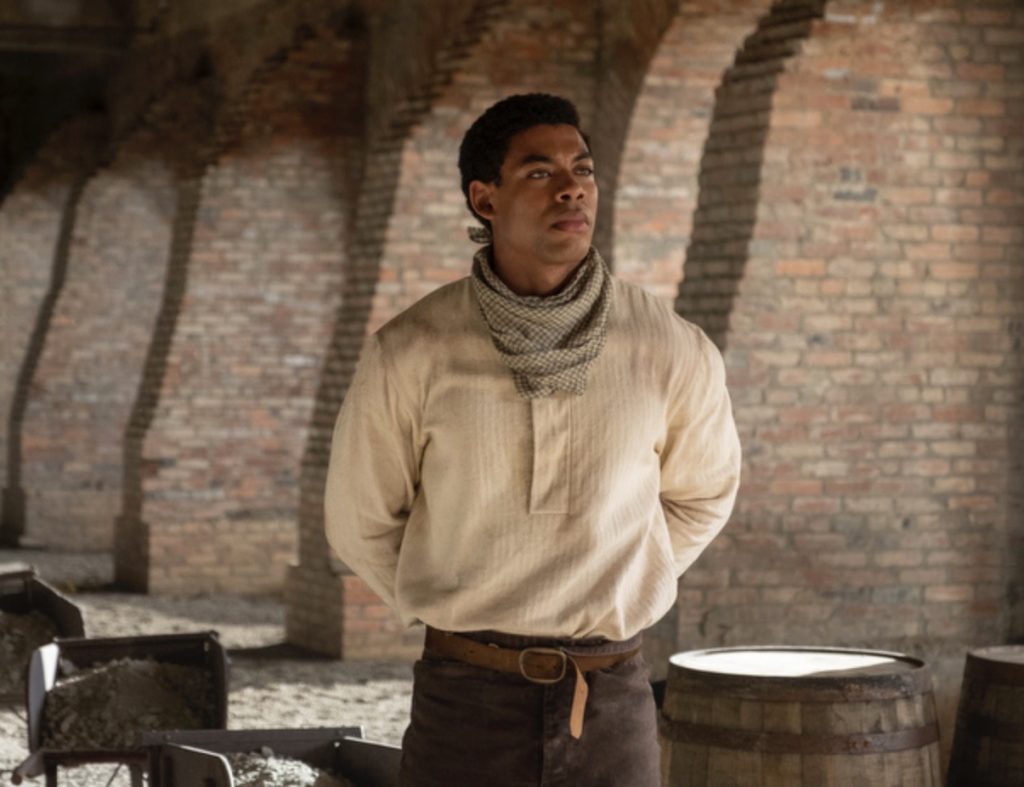
BJ: It was early in the production because we started in Savannah. This was different because normally we go off to shoot, and thirty days later I can sit down with Nick. This is even harder than a 16-day shoot and we’re not going to have that luxury. This film was different.
I didn’t have an idea of what it was going to sound like before going off to shoot. With Moonlight there were some very concrete ideas I had, Beale Street was the idea of brass. But this is a totally different time period, these characters, they contextualize what these characters must have felt. It was very difficult for anyone because we don’t have as much of their recorded history or testimony as we should. So I realized that through the process of making the show, I would come to understand what it wanted to sound like. I just had this idea: it’s an Underground Railroad, all these subterranean things.
We were on set filming one day. You’ve got to be a sponge, man. There was a construction site next door, and they were working pretty well with us. But we broke for lunch and so they started up their drill. And this is like 300 yards away but I could feel the vibration through the yard and it felt like a rhythm. So I literally ran across the square and recorded this very — listening to it now, it doesn’t make any sense. It’s hard to tell what it is.
NB: I love that you sent it. I loved it. It was so helpful. It was like, right away, okay.
BJ: And I sent it. This rhythm pattern is based on the drill as it made its way into the score. But I think it’s pretty dope it [worked in] the score.
For me, there is always one idea, one concept in the process that Nick and I [had in mind]. The moment he’s talking about in Moonlight, in the second chapter, Kevin drops Chiron off after they’ve had this moment at the beach… And Nick made a drum move [out of the sound there]. That’s what’s playing as Chiron is walking to the school to smash the chair over Terrel’s head. Then, in Beale Street, it’s taking brass and playing it with cello or violin.
In [Underground Railroad], we released this teaser of everybody going in reverse. The way that came about was, as we were editing the show I kept trying to unsee the things I was seeing, trying to undo the things that we were doing. Then I was sitting with Nick and he had composed this beautiful piece.
Over the course of doing this, we tried — the same way we were recording with Zoom. Nick is in New York, I’m in L.A., we tried to record a score this way and realized that is not going to work. So we figured out a way to get Nick to L.A. and we got tested the whole time, so we started working together.
Nick recorded the score he had written, and we were watching the scene that Nick had scored, and I thought, “How would that sound in reverse?” Something about these chords sounds like it would be really lovely in reverse. Flip in reverse and let’s [record] it. It was dope. That opened this whole new portal of what I thought was musically possible for us and the show.
I listened to Cesar’s thing in Resurrection the other night. I was surprised that that was the same piece. I know that once we reverse it, there’s other stuff that has to happen. if you just reverse it, it’s going to be sloppy. But once you do those things, then the artistry begins. It’s not the ending, it’s the beginning. That’s what we found with this process.
NB: These are the types of things that happen. We go so deep with this, and we’re in the cave. We do a really good job of turning the world off for whatever those hours are as we’re doing this. We really dive in and focus. Especially on this project, it’s an incredibly profound experience to work with this and hear Barry’s thoughts. It sounds like a simple idea, but that just happened. What if we reversed this, and it becomes a whole concept for us.
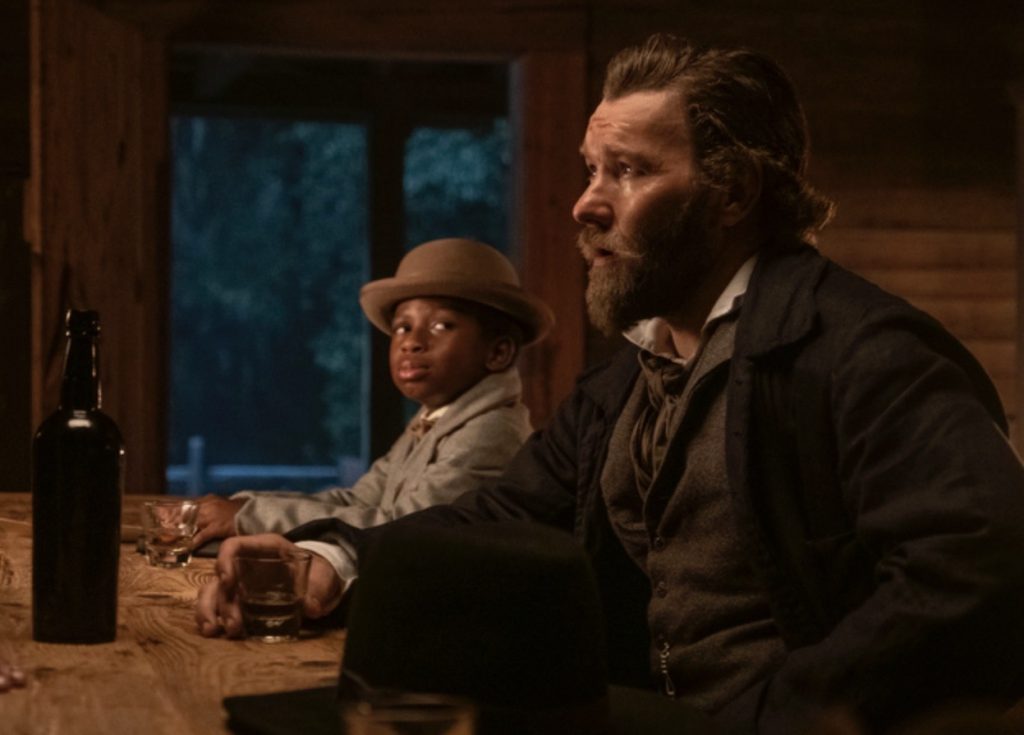
BJ: One of the cool things that happened between Colson and I is that I told him right from the beginning that this has to be a series, it can’t be a film. I don’t want to waste your time if you’re looking to make it as a film. He was really dope. He was like, “I agree, I think it should be a series as well.”
When we hit the writers’ room, it was clear that we were taking the mandate from the book that [the lead character] Cora is manifesting these things and she’s evolving throughout the journey. When she gets to South Carolina, it looks and it feels completely different from Georgia. When she gets to North Carolina, it feels different from South Carolina. When she’s gets to Tennessee, it’s like, what is happening?
As opposed to us scoring one show, it felt like we were scoring six shows, and I said we needed six completely distinct soundscapes. That’s a lot of ground to cover. Doing it remotely, we realized we’re working at such a slow pace right now. How many hours are you at right now, Nick?
NB: It’s like five hours of music, and that’s just what’s in the show. It’s over five, but the amount that’s been composed and that we worked on together, it’s hours. I don’t even know how many hours that is. It was amazing, because of the period of time that we worked on it and because of the scope of the project. There were things early on — working on, for example, episode 1, there were things that maybe a year later, I would come to episode 1 and would actually say, wow, I now know so much more about this that I want to change what we had.
BJ: That was a cool thing too, because we scored it out of sequence but we were finishing in sequence. We knew by the second hour the audience is going to be here, and then by the seventh hour they’re going to be here.
I was listening to a song by this artist named Hakeem called Bouncing. The studio put out an EP last year of the album — never heard of him. I put this album on, the song comes on, and I’m like, “This is beautiful. I have no idea what he’s saying.” So I go to look up the lyrics and the story of the song is completely different from the feeling I’m getting from it. I’m like, “Oh, that’s beautiful.”
I sometimes think of Nick’s score in the same way. We’re using certain instruments and having them inspire with a certain feeling. That feeling can either be in sync with what the character is feeling or it can be completely in opposition. I think those tools, you can use them on a concept like ours. You’re a very powerful man, Nicholas Britell, I’ll say that.
NB: Barry, you’re the amazing inspiration, I get these incredible directions from Barry. What’s wonderful is trying out those things like what you’re saying, the idea that there are things that are in sync and then there are things that are in counterpoint. I think that it’s discovering when and where those happen that is such a mystery, and that over time your sense changes too and you learn and you learn.
Some of my favorite moments are when there are things in counterpoint, where you’re seeing one thing and then you’re hearing something else, and it’s that joining of these two that creates this other meaning that maybe didn’t exist before. I can think of lots of places in the show where what we ended up doing was different from maybe what I initially would have thought.
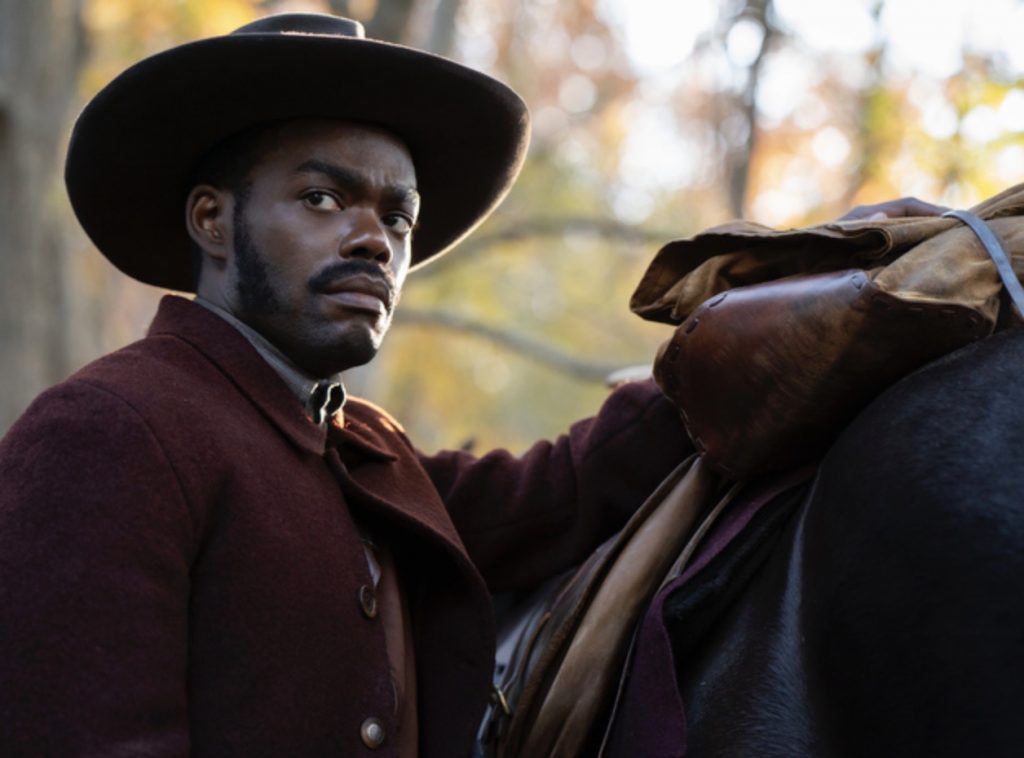
BJ: We assume a lot of things about a character like Cora Randall or other characters in the show, the content of their lives directly influence the tone of their everyday experience. I thought it was very lovely, especially in the Indiana episodes. To take some of these sounds that had meant one thing much earlier in the journey and show a completely different side of them.
NB: So that’s the floating piece, and speaking of unexpected musical conceptualizing, that was something that for a long time I had been thinking about the opening episode for a very long time and how we had started. With Episode 2, where we go to South Carolina that episode, there’s a piece that this was basically the starting point for, a piece called “Bessie”, which is when Cora is first walking down the main street in South Carolina that you saw. There is almost this dream-like sound to that, and that’s a musical universe that I did not anticipate at all when we first started.
I’d read the book and knew that there were historic anachronisms. Now this is the 19th century, but there is a sense of fantasy in this, too. And I remember talking to you about what is the sound that’s going to give us a sense of potentially things that are going to be strange, or a dreamlike sense of things. This piece, we call “Floating” — I remember I wrote it with you there one day in L.A. on the piano. There was a piano in the room where we worked. It was a very soft-felt piano sound there, and to me there were multiple different overlapping lines in that piece. There is almost this cyclical kind of up-and-down with the harp.
BJ: But it comes from Fred. Fred is this cicada that Nick isolated. We had these fill recordings from very early in the production and Nick chop & screw and chop & screw cicadas because they are always very high frequency. And one of them just stood out. I remember it was like the drill and the Fred rhythm and Nick was ripping it on piano. It got much faster-paced from the chop & screw version, and that was where the floating consciousness [came from].
NB: The “Floating” came out of this and there’s a slower version of that, and it went into a darker place that actually wound up in some of the 1-04 — episode 4 — elements.
BJ: It is a score to a teaser that we haven’t released yet. Hopefully, we’ll get to release the big shot on the field.
NB: You’re right. What was interesting was seeing how these musical concepts would then, when they felt right, for example, discovering how they might have been linked in different places, then all of a sudden they become their own kind of a concept for us. So for example, it was only much later that I started talking to Barry about how that motif we hear there — perhaps that is an element of almost like a train. And that motif becomes something in a lot of ways. Now looking back, the railroad is a motif in some sense for that, and we actually hear a variation of that in a different key at the end of an episode.
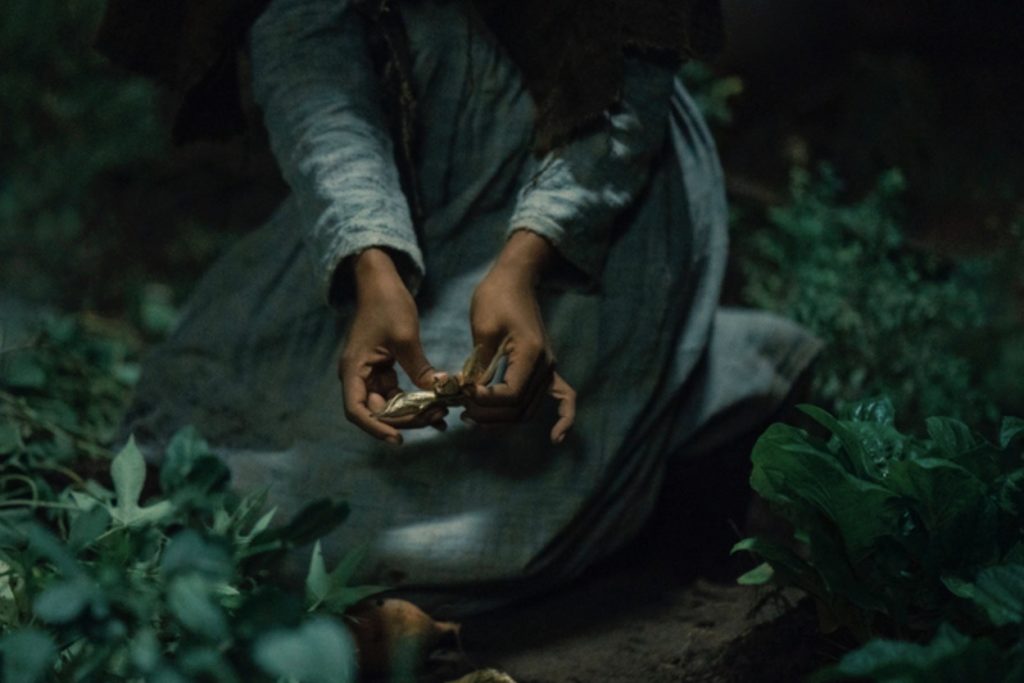
BJ: It’s crazy. It’s there on the hill and it’s kind of Fred.
NB: That’s Fred, yeah. And it shows something that we’ve never done before, where there is literally this sound in nature that led to these types of things. You know those Oblique Strategies cards that [innovative composer] Brian Eno made years ago? They’re a deck of cards that you open that are there for almost creative discovery. They’re these random prompts. I bought a deck about 10 years ago, maybe. You open a card and one of them just says “water.” You’re like, “I’ll go get a glass of water.” It just says something. And what I found fascinating with this was this sound of cicadas were just this fascinating prompt, in a way. You never say, “Oh, that’s going to lead to” these interesting musical discoveries. But again, that’s the beauty of the process. You really don’t know what unfurls from something.
NB: “In Eternum” is a direct example of this reversal idea, and the full circle of this is the piano piece that we heard in the previous teaser we just watched, that piece that Barry and I called “Floating” for Cora when she’s walking in South Carolina. The full version of that piece is a piece called “Bessie” and for me, I think, in the show, that’s probably the largest-scale orchestral flowering up of music that is in the show. It certainly is in a sense of feeling of lushness and possibility. Barry had the idea, what if we reversed that piece? That sound, the “In Eternum” piece…
We recorded the score, which was its own — first time I’ve ever done something like this, this long-distance recording there’s an incredible group of musicians in London that I have had the honor of working with over the years, and we put together this incredible orchestra there, recorded it at Ayre Studios in London, and we were able through their various technologies to do this. So while I was in Los Angeles with Barry, we recorded in London all these orchestral pieces. If you took that teaser “In Eternum” and reversed it, you’d get that piece. Not exactly, because, you know, chop not slop, you gotta reverse it. But if you reverse that teaser, you get that piece, which I think is kind of dope.
NB: I love that process and I love the fact that after doing that, there are so many places that we even thought we could do this. It’s like you were saying, Barry, like on Beale Street, the concept of, how do you create the feeling of injustice?
It’s by harming that feeling of love, and on Underground Railroad there were a lot of moments where we took it even a step further. I feel on each project we’ve learned something or taken ideas and gone even another degree on those processes. On Underground Railroad there were so many different types of sonic experimentation we did, and I can think of all the sounds and the way that we wove all those in. But one of these big ones was the idea of these reversals.
BJ: Every time Cora enters a new state — I mean the English language has so many definitions: the physical state, and also the emotional state, the mental state. They justify that, as Nick said, how do you take the next sound? Are you creating the sound of injustice by harming the sound of love? While Cora is taking greater possession of her inner self, while her outer self is maybe still not yet free. How do we musically reflect that? It was incredibly challenging.
But the hard thing with the show was, it’s a ticking clock. Every time we got to a new episode, we had to figure out how to keep this thing from detonating. And that was the real pressure because we wanted to allow ourselves the space to explore how the sound organically evolves. But also, we gotta mix this episode in five days.
NB: Literally.
BJ: Five days. So how do you write music that I think is appropriate for the show and for the place that Cora is at. Everything is about Cora, and actor Thuso [Mbedu] does such a great job in the show, giving you a lot to work with. There’s a lot of emotionality there. But yeah, it was tough. For me, that was the hardest element of it.
NB: I agree. I think the different musical worlds that the series necessitated — and it really necessitated it. This is not the type of thing where you can go from episode 1 to episode 2 and say, “Oh, we’ve heard episode 1, we’ll just take some of that and vary it, and we’re in episode 2.” It’s not possible. Because these are literally different worlds. Like Barry was saying, they were different states — states of mind, states physically, states mentally.
I think maybe some of the hardest stuff, we would figure things out, and when we would feel that we figured things out, we would go so deep. There’s that moment when we would finally figure something out and finish the episode. and then you’d have about 30 seconds of feeling like, “You’ve done it. Go to the next one.” That was definitely [part] of it.
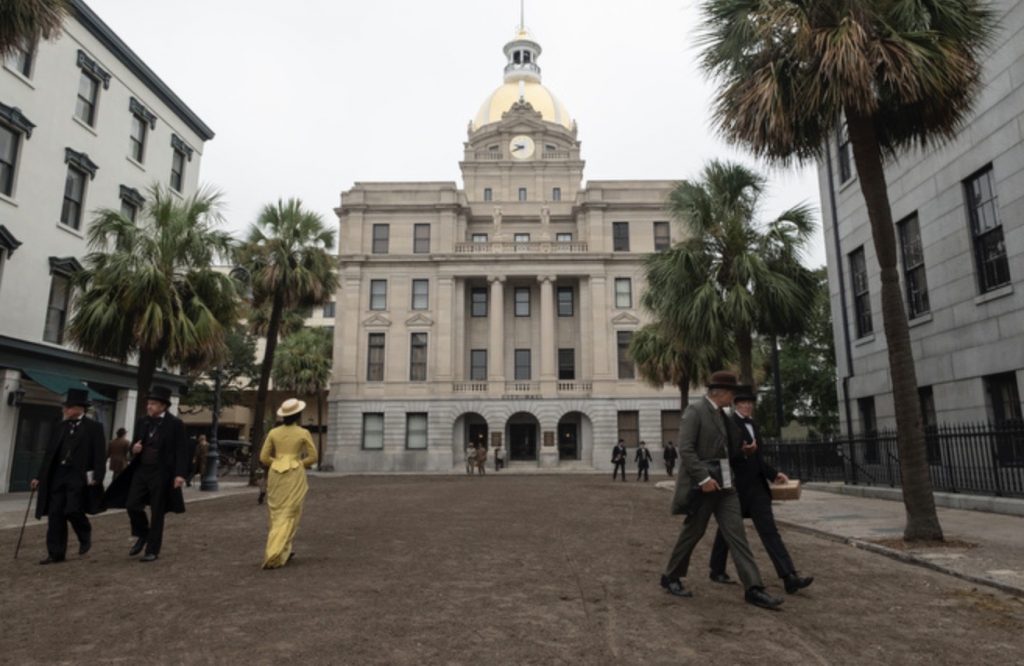
BJ: But you know what, I’ve got to shout Nick out. Because the cool thing about how compact this process of us working together has been — I mean, six years is a long time. But because of what we’ve done with those six years, it’s not a long time. I think we’ve created some dope-ass shit, Nick, over the course of this six-year period. The aria you wrote was, and I was nowhere near.
You were taking Fred and remixing all that stuff, and the drill, and remixing all that stuff. Because it was such a long shoot, we’d go 45 days, 50 days, we’d take a break. We’d have to move to a new location or something like that and do another 50 days, and then we’d take another break. And I wanted the crew to see the quality of the work they had been doing, so we would put together these 40-50-minute reels of just shots.
We would just drop a shot in and put music to it, as Nick was composing all the score and we were just throwing it onto these reels that we would show the crew every 50 or so days. It was giving us the opportunity to see all the territory Nick was charting.
And by the time we came in and started putting the show together, Nick, I did have some ideas. That is why the aria ended up in the North Carolina episode. I wasn’t surprised, because I kept telling them. They kept trying to put it in “The Great Spirit”. I’d say “No no no, I have an idea of where this is going.”
NB: This is the great thing about Barry Jenkins, okay? Barry knows these things in such a deep way. I remember you saying to me “North Carolina” and I would just play something, and then he would go “Tennessee”. And he’s right about these things. And then again, it’s still the starting point. It’s still a starting point, but your instinct on the aria was exact.
BJ: Although Tennessee part 2 yes, but Tennessee part 1, that was an ordeal.
NB: All right, That was a hard one. I think — Ridgeway is a very difficult character, and Ridgeway, I think, one of the things that Barry helped me figure out was that Ridgeway basically doesn’t “get” music. Ridgeway gets sound, there are notes, but it’s not music.
BJ: We didn’t have an orchestra with Moonlight and If Beale Street Could Talk. This was the first time Nick got to record with a full orchestra.
NB: This is the biggest orchestra we ever had. On Moonlight, we had an orchestra for just a couple of the pieces. We had the orchestra for [when] we recorded Mozart’s “Vesperi Solas” and [when] we did “Middle of the World” we had the orchestra for that. And we actually had the orchestra for the culmination piece as well.
BJ: About how many pieces?
NB: It was about 20-ish pieces. We actually had a 50-piece string orchestra, and it was basically strings and harp that was our orchestra in London. Barry and I have never had the opportunity to have that scope of the sound before. I loved Barry’s — you were able to come over when we were doing those Zooms and see the hall. I had a big, big screen set up so we could “live.”
The first time I haven’t conducted, it’s really something that I love being able to be there, obviously, and conduct and experience it in person, which was not possible in the universe we’re currently living in. But being able to still real-time see what was happening and direct it [from] Los Angeles was really special. So yeah, you’re totally right. This is definitely the largest scope of orchestral sound we’ve ever been able to do together.
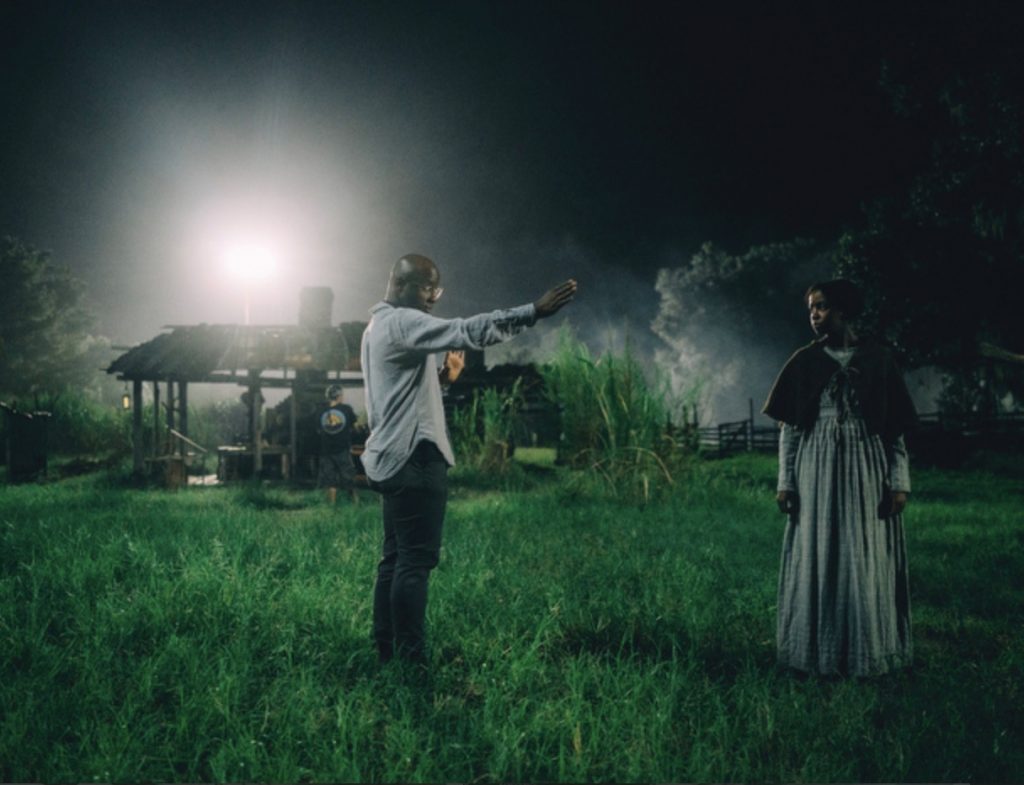
BJ: If Nick had been in New York and I in L.A., in that setup I would take a trip to New York every now and then, and Nick would take a trip to L.A. every now and then. In this case, once we started the mixings for television — we started mixing in October and went all the way into February.
Nick’s house happened to be, I think it was a 10-minute drive from the edit. And then from Nick’s house to the stage was another ten minutes. So there were days when I could literally get up in the morning, go to the edit, leave the edit, go to Nick’s, leave Nick’s, go to the stage, while I was at the stage, “Oh I wish we could do this a little bit different”, be able to go 10 minutes back to Nick’s place, sit down, do it, and then literally by the time I get back to the stage, it’s there.
The immediacy is strange because of the unfortunate situation of the last year. We’re in these pods, and so the only person I can actually sit next to and talk to besides Lulu is Nick.
NB: Exactly. So I tell Barry, “I miss you, man,” we got to really spend so much time together.
BJ: This time is the most time we’ve ever spent together.
NB: It was really special. And Shaughnessy [Hare, sound editor] would come over, we would have some dinner and then we would work late. We had that space and time to be able to dive in. As we’ve said, I don’t think this could have been possible any other way, with the amount of music and thought that went into this.
I was telling Barry, there are some episodes in The Underground Railroad where there are multiples of the amount of music, for example, that I had written for Moonlight — in just one episode.
BJ: The biggest thing for me is, I fell in love with this book because of this woman, Cora, and then Thuso Mbedu, who plays our main character. Nick and I can talk about being able to dig deep and dig and dig. I think she did the same thing. Everything revolves around the show, whether it’s the images, or just so many different things; but it’s the score as well.
All of it is a manifestation of this main character. I just love that Cora Randall is not a famous person, and that’s fine, it’s just no famous people. But I love that this random woman who suffered the unfortunate fate of being enslaved has gotten to be the bedrock of this huge mythology with all this arc around it. Nick and I could just create it from her.
NB: That’s it, man. Check your frequency notions at the door, and tune your ears to Cora Randall. I think that will be the best way to track the journey.
Here’ the trailer of the film.

